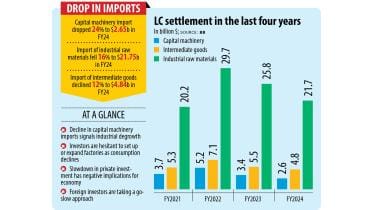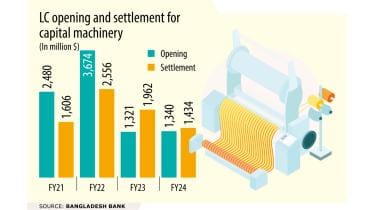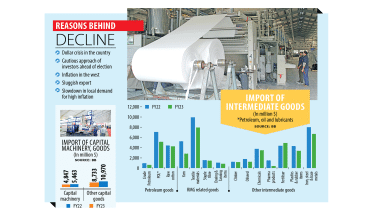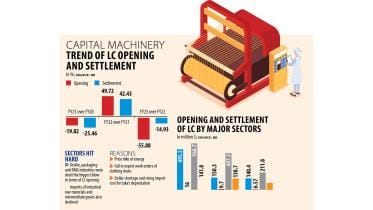Capital machinery imports
Key imports fall, painting bleak outlook for investment, jobs
Bangladesh’s imports of capital machinery, industrial raw materials, and intermediate goods fell for a second consecutive fiscal year, reflecting the depressed state of private investment and bleak prospects for new jobs.
25 August 2024, 18:00 PM
Machinery imports rise, reversing the downturn
Imports of capital machinery edged up in the first six months of the fiscal year (FY) 2023-24, reversing the downturn that persisted for nearly one and half year as political uncertainty ebbs and exporters expect increased orders from western buyers.
30 January 2024, 01:18 AM
Capital machinery import slumps, a sign of slowing investment, economy
Bangladesh’s import of capital machinery and intermediate goods, which are used to make finished products for both local and export markets, declined in the last fiscal year, reflecting a slowdown in private investment and the economy.
20 August 2023, 18:00 PM
Capital machinery imports keep falling
Bangladesh’s import of capital machinery has continued its falling trend as banks have remained cautious in financing purchases amid the dollar crisis while entrepreneurs showed reluctance to expand owing to slowing domestic and export sales.
18 April 2023, 02:00 AM



